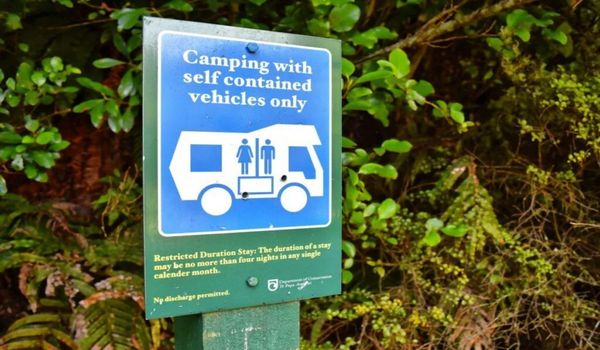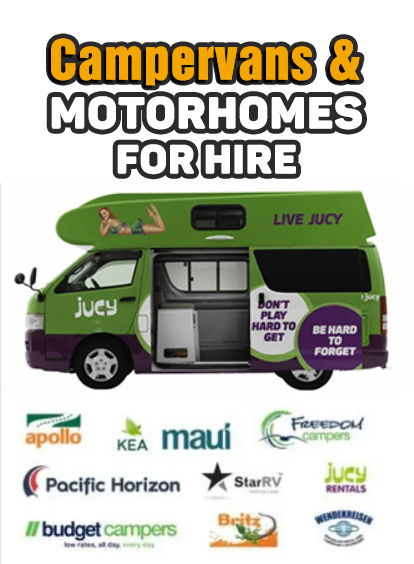✅ Last Update: Jun 24, 2024 @ 1:29 pm
🚌 Introduction to Parking a Campervan or Motorhome in New Zealand
When traveling around New Zealand in a campervan or motorhome, finding suitable parking spots is essential for a comfortable and enjoyable journey.
With its breathtaking landscapes and diverse attractions, New Zealand offers a variety of parking options for campervan enthusiasts.
This article will share ten helpful tips for parking a campervan or motorhome in New Zealand.
These tips will cover topics such as finding appropriate parking areas, understanding parking regulations, ensuring safety and security, and maximizing your overall experience while exploring this beautiful country.
1. Research Parking Options in Advance
Before embarking on your campervan adventure, take the time to research parking options in the areas you plan to visit.
Look for designated campervan parking areas, holiday parks, or camping grounds that cater specifically to campervans and motorhomes.
Additionally, familiarize yourself with local regulations and any restrictions on overnight parking.
Online resources, travel guides, and campground directories can provide valuable information about parking facilities, amenities, and associated costs.
Planning will help you locate suitable parking spots and avoid any last-minute stress or inconvenience.
2. Utilize Holiday Parks and Camping Grounds
Holiday parks and camping grounds are excellent options for parking a campervan or motorhome in New Zealand.
These facilities typically offer designated spaces with essential amenities such as power connections, fresh water supply, dump stations, and bathroom facilities.
Many holiday parks also provide additional perks like communal kitchens, laundry facilities, and recreational areas.
While there may be a fee for using these facilities, the convenience and added comforts make them worthwhile.
Booking ahead of time is recommended, especially during peak travel seasons, to secure a spot in your preferred holiday park or camping ground.
3. Freedom Camping and Self-Contained Vehicles
New Zealand allows freedom camping in certain areas, but it is essential to understand its regulations and restrictions.
Freedom camping refers to parking overnight in non-designated areas, such as public lands or along the roadside.
To engage in freedom camping, your campervan or motorhome must be self-contained, meaning it has onboard facilities for waste disposal, fresh water, and cooking.
Check the Department of Conservation (DOC) website and local council guidelines for information on designated freedom camping areas, permit requirements, and any specific rules or restrictions you must follow.
🏞 For more information about Self-Contained, you can check the following article: Self-Contained in New Zealand | The Ultimate Guide
4. Respect Local Communities and The Environment
When parking a campervan or motorhome, respecting the local communities and the environment is crucial.
Avoid parking in residential areas unless permitted, and be mindful of noise levels and privacy concerns.
Dispose of waste properly using designated dump stations, holiday parks, and camping grounds facilities.
Respect the natural surroundings and adhere to responsible camping practices, such as leaving no trace, not damaging vegetation, and respecting wildlife habitats.
By being considerate and responsible, you preserve New Zealand’s natural beauty and maintain a positive image for campervan travelers.

5. Follow Parking Regulations and Signs
Observe and adhere to parking regulations and signs when selecting a parking spot for a campervan or motorhome.
Notice any signage indicating time restrictions, loading zones, or prohibited areas.
In urban areas, use designated parking lots or street parking where permitted.
Be aware of any parking meters or ticketing requirements and comply with the local regulations.
Ignoring parking regulations can result in fines or penalties, damaging your travel experience.
Always prioritize safety and legality when choosing a parking location.
6. Optimize Safety and Security
When parking a campervan or motorhome, prioritize safety and security. Choose well-lit areas, especially if parking overnight.
Consider staying in established campgrounds or holiday parks with surveillance cameras or security personnel.
Lock all doors and windows when leaving your vehicle unattended, and keep valuables out of sight.
Investing in additional security measures such as steering wheel locks or alarm systems for added peace of mind is also wise.
While New Zealand is generally safe, taking precautions will help safeguard your belongings and ensure a worry-free travel experience.
7. Be Mindful of Local Traffic and Accessibility
When parking a campervan or motorhome, be mindful of local traffic and accessibility—Park in a way that does not obstruct traffic flow or impede pedestrian pathways.
Avoid parking in areas with tight spaces or where it may be challenging to maneuver your vehicle.
Consider the size of your vehicle and its height clearance when selecting parking spots.
Be cautious of narrow roads, low bridges, or weight restrictions that may not be suitable for larger vehicles.
Awareness of local traffic conditions and vehicle restrictions will help you park safely and efficiently.
8. Seek Recommendations From Locals or Other Travelers
Local knowledge can be invaluable when finding the best parking spots for a campervan or motorhome. Seek recommendations from locals, campground owners, or fellow travelers who have explored the area before.
They can provide insights into hidden gems, scenic spots, or less crowded parking areas.
Online forums, travel groups, and social media platforms can also be great resources for gathering firsthand experiences and parking suggestions.
Embracing the wisdom of those who have ventured through New Zealand will enhance your parking choices and help you discover unique destinations.

9. Consider Public Transportation or Walking
In larger cities or congested areas, it may be more convenient to park a campervan or motorhome in a secure location and utilize public transportation or walk to explore the surroundings.
New Zealand has an efficient public transportation system, including buses and trains, which can provide easy access to popular tourist destinations and city centers.
Parking in designated parking lots or using long-term parking facilities can save you the hassle of navigating busy streets or finding parking spaces in crowded areas.
Assess your itinerary and consider alternative transportation options when exploring urban environments.
10. Practice Patience and Flexibility
Lastly, practice patience and flexibility when parking a campervan or motorhome in New Zealand.
Parking spaces may be limited during peak travel seasons or in popular tourist areas.
Prepare for potential challenges and have alternative plans in mind.
Adjusting your itinerary or exploring off-the-beaten-path locations may be necessary to find suitable parking options.
Remember that parking may require some time and effort, but the rewards of exploring New Zealand’s breathtaking landscapes are well worth it.
Conclusion
Parking a campervan or motorhome in New Zealand requires careful planning, awareness of regulations, and consideration for the environment and local communities.
By researching parking options, utilizing holiday parks or camping grounds, respecting local regulations, and prioritizing safety and security, you can enjoy a seamless parking experience.
Seek local recommendations, be mindful of traffic and accessibility, and embrace alternative transportation options when necessary.
With patience, flexibility, and a sense of adventure, you’ll navigate the parking challenges and create unforgettable memories as you explore the stunning beauty of New Zealand in your campervan or motorhome.















